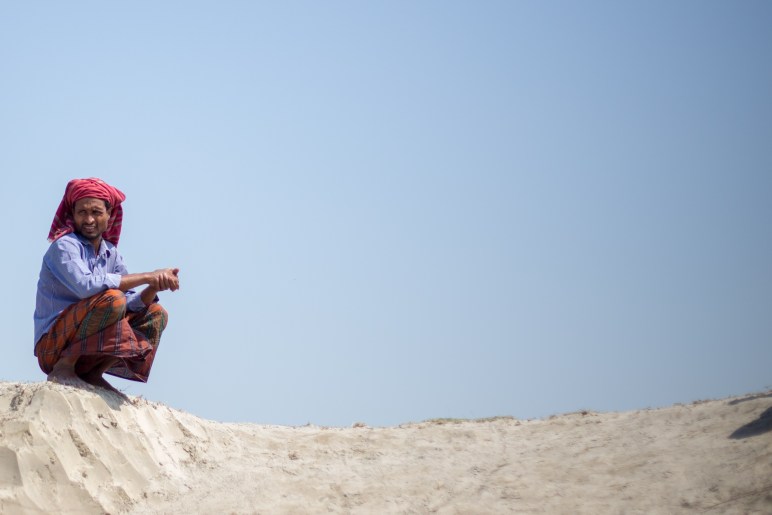(Photo taken in Kurigram District of northern Bangladesh)
Written by Tony Chan (Senior Partnership Development Officer)
Friends asked me, “Your organisation (CEDAR Fund) is for poverty alleviation. Why does it actively promote environment protection?”
This is closely related to CEDAR’s understanding of poverty. We believe that poverty is resulted from an impaired relationship. In the beginning of creation, relationships between man and God, man and man, and man and nature were good. However, man sinned and disobeyed God, and even exploited others and the nature for their own benefits. Those who were exploited became the poor.
In Kurigram District, north of Bangladesh, desertification is severe and many farms have been vanished and covered by sands and dusts, putting farmers in agony. In India, some villages experienced failed crops due to three years of climate disasters. Farmers from both countries blame climate change simultaneously. The impact of climate change on farmers is huge that they struggle to survive. This is very common in countries where CEDAR supported projects locate.
Fortunately, the farmers did not blame me as the culprit of climate change; otherwise, I had nowhere to hide. When I was standing on the sand dune in Kurigram, I saw their hardship and was weighted by heavy guilt. Culprit was actually the best description. A few years ago, when tornadoes had not yet picked up sands and floods had not yet flushed sands and muds into farmlands, Kurigram was benefitted from being at the downstream of several rivers, of which soil was fertile and many high-valued produce were planted. Sadly, this land of abundance was wiped out because of us.
In cities, we destroy the environment easily for the sake of our convenience, comfort, and cost-effectiveness. For example, many people are in love with fast fashion, but in terms of keeping a low production costs, a lot of manufacturers would not treat sewage properly and high volumes of waste water are disposed directly in poor villages, turning the community into a living hell and residents into victims. This action not only harms the nature, but also disowns God’s entrusted stewardship to us – to manage the land, and hurts our neighbours.
This is all about justice. City dwellers damage the nature, and the nature revolts with disasters. However, cities are well defended, the impact on them is indeed lighter than that on developing countries. Wealthy countries exacerbate climate change, while neighbours in unprotected and poor countries bear the adverse impact. Is it fair?
This is all about love, too. We often hear people’s doubt about whether the world will change if we really switch on air-conditioners less and consume less beef. I would answer, “when I practice my faith and live an eco-friendly life, I am not in hopes of changing the world – when I choose not to use straws, not to chase after fast fashion, or choose to financially support poverty alleviation projects that benefit communities’ environment, I just say to my Father God in my heart that I do this out of my love for my neighbours afar. Why do I love them? Because I love God.”
So when it is all about justice and love, how could Christians not respond to the impacts of climate change?
*The original Chinese article was published in Christian Weekly (Issue 2854), http://www.christianweekly.net/2019/ta2037888.htm. With permission of Christian Weekly, CEDAR Fund translates the copyrighted article into English.
**To mobiles churches in Hong Kong to live out the mission of Creation Care, CEDAR Fund, China Graduate School of Theology, Hong Kong Church Renewal Movement, and Mission To New Arrivals Limited are holding the Lausanne Movement “Creation Care and the Gospel” Conference – Hong Kong on 9 September and 1 October (Mon and Tue), and invited Dr. Jonathan Moo, assistant professor at Whitworth University, as the keynote speaker for the conference. Please find information of the Conference in the poster below or click here to download (Chinese only).






